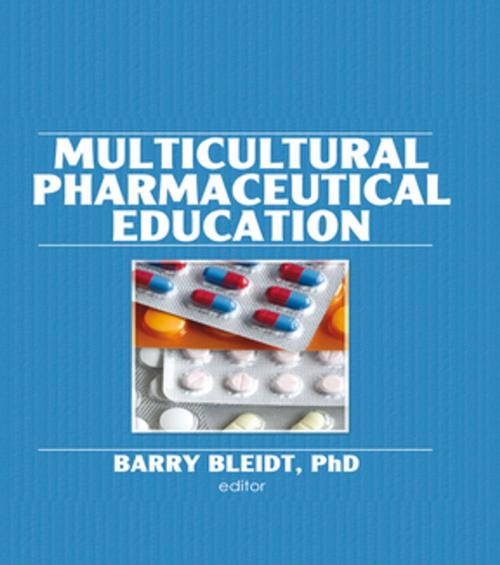Multicultural Pharmaceutical Education
Nonfiction, Health & Well Being, Medical, Specialties, Pharmacy, Social & Cultural Studies, Social Science, Cultural Studies, Ethnic Studies, Reference & Language, Education & Teaching| Author: | Barry Bleidt | ISBN: | 9781317952978 |
| Publisher: | Taylor and Francis | Publication: | October 18, 2013 |
| Imprint: | Routledge | Language: | English |
| Author: | Barry Bleidt |
| ISBN: | 9781317952978 |
| Publisher: | Taylor and Francis |
| Publication: | October 18, 2013 |
| Imprint: | Routledge |
| Language: | English |
Multicultural Pharmaceutical Education spotlights methods and theory on how to increase representation of minorities in pharmacy schools and practice settings. Many of the ideas presented in this book are unique, and all provide an opportunity for institutions with few minority students to greatly improve their recruitment and retention efforts geared toward these students.
The contributing authors, representing all levels of academia--deans, undergraduate students, vice provosts, executive directors, a National Professor of the Year, and faculty members--have all had experience in some aspect of minority pharmaceutical education. It is through their practical experiences that they offer suggestions and commentary on pharmacy programs of study. Historical accounts or examples of success that could be emulated at other institutions are included.
With the help of Multicultural Pharmaceutical Education, colleges and universities and their faculty can forge ahead in attracting and retaining minority students to their pharmacy programs and into the world of pharmacy practice. Structured around four major areas (foundation, commitment, actuation, and conclusion), the authors remove the option of traditional excuses of failure in this important area of education.
All those involved in pharmacy education should read this book whether deans, admissions counselors, professors, or students. Multicultural Pharmaceutical Education provides an easy-to-read, practical and theoretical approach to improving the opportunity and quality of education that minority students can achieve in pharmaceutical programs.
Multicultural Pharmaceutical Education spotlights methods and theory on how to increase representation of minorities in pharmacy schools and practice settings. Many of the ideas presented in this book are unique, and all provide an opportunity for institutions with few minority students to greatly improve their recruitment and retention efforts geared toward these students.
The contributing authors, representing all levels of academia--deans, undergraduate students, vice provosts, executive directors, a National Professor of the Year, and faculty members--have all had experience in some aspect of minority pharmaceutical education. It is through their practical experiences that they offer suggestions and commentary on pharmacy programs of study. Historical accounts or examples of success that could be emulated at other institutions are included.
With the help of Multicultural Pharmaceutical Education, colleges and universities and their faculty can forge ahead in attracting and retaining minority students to their pharmacy programs and into the world of pharmacy practice. Structured around four major areas (foundation, commitment, actuation, and conclusion), the authors remove the option of traditional excuses of failure in this important area of education.
All those involved in pharmacy education should read this book whether deans, admissions counselors, professors, or students. Multicultural Pharmaceutical Education provides an easy-to-read, practical and theoretical approach to improving the opportunity and quality of education that minority students can achieve in pharmaceutical programs.















